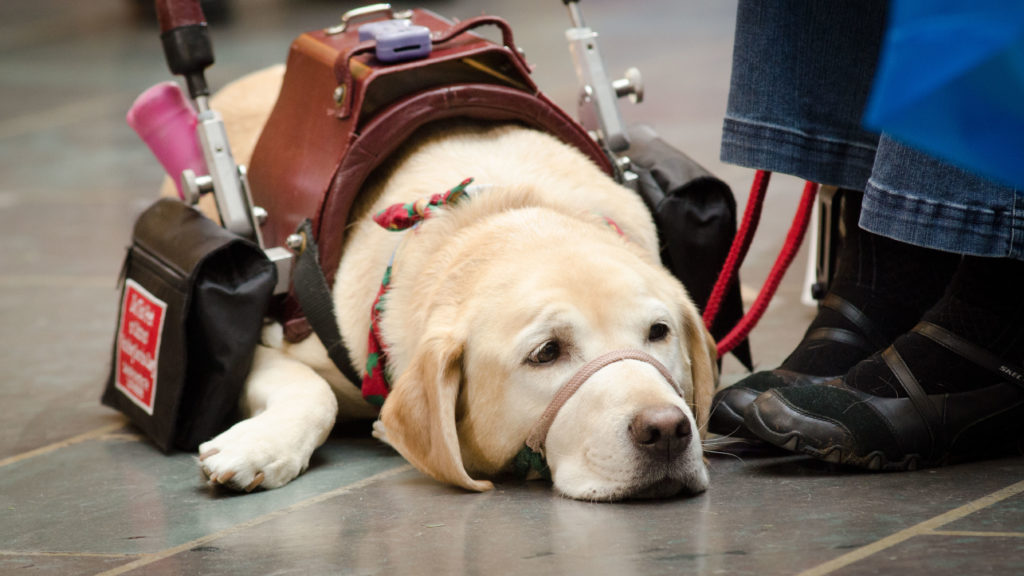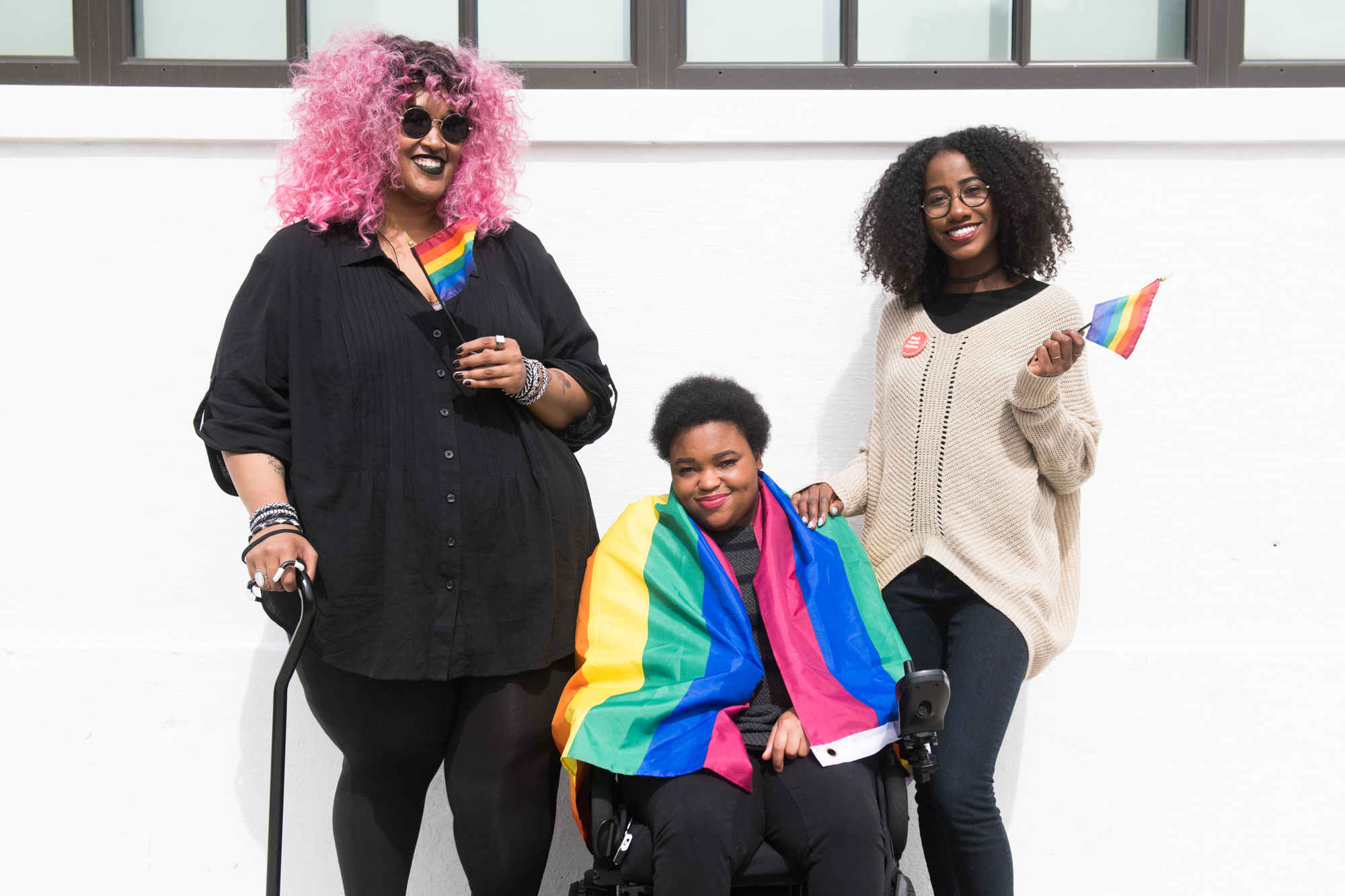Believe disabled people.
Believe disabled people, whether or not we look disabled.
If you can absorb that statement, you can probably skip this post. However, read on for some more nuance and examples from my life.
Earlier this year, I wrote about using a cane as a person with an invisible disability. It struck a positive chord for my readers, who could see their own experiences, or those of disabled loved ones, reflected in the article. I hope that it also helped some people better understand how people like me navigate the world as someone with an invisible disability.
The post also brought up a lot of discussion, especially on my Facebook, about how people treat the disabled. One topic that came up was not being believed. A lot of disabled people worry that people think they’re “faking it.” Some of us have actually been told as much to our faces.
My bookstore experience
For three years I worked at a used bookstore in Austin. It’s still one of my favorite jobs ever. I love books!
Working in a bookstore seems like a laid back experience if you’ve never done it. People would come in and say, “I’d love to work here, you must read all day!”
Everyone there loved books, it’s true, but we didn’t do much reading. Bookstore work is incredibly physically intensive: it’s constant lifting, carrying, pushing. Add in other repetitive motions you do all day, from operating a price gun to running the cash register, and it can take its toll on you even if you’re not a “spoonie” like me. The older employees would say it’s only a matter of time before the job gave everyone back problems.
For me, physically, it was devastating. My fibromyalgia flare-ups got more frequent. After a while, they just didn’t stop and I was always in debilitating pain. I used a company disability policy to get short-term disability, then eventually left the job. It probably took me over a year to fully recover from my three years there, during which I had trouble working at all.
Near the end of my time on disability, I hung out with one of my favorite coworkers. He told me matter of factly that numerous coworkers doubted my disability, and held frank discussions about whether I was faking it to access the insurance money.
It felt horrifying to know that people I considered friends as well as coworkers were talking behind my back. Thinking back on that conversation still fills me with anger and shame, but enough time has passed that I can comfortably use it as an illustrative example of ableism and disbelieving the disabled.
Unpacking the disbelief
Why didn’t (some of) my coworkers believe that I was genuinely disabled and unable to work? There’s lots of factors at play in ableism, of course. In this case, one major factor is common perceptions of what it means to be disabled.

As my coworker confirmed during our conversation, a lot of coworkers thought I faked my disability because it varies from day to day. On my best days I was positively bouncy and jovial, while on others I could barely shuffle around the shop when I could make it into work at all. Rather than assume my condition might be unpredictable (it is), they immediately assumed that I was “acting.” I guess they imagined I was out living the high life when they didn’t see me, instead of mostly lying around in bed.
Other factors are likely similar to the ones I outlined in my article on canes: there’s an idea of what a disabled person looks like, and I often don’t fit it as I’m relatively young looking, and my disabilities are “invisible.” It’s similar to what leads to harmful memes about and dismissive behavior towards people in wheelchairs who can walk.
Believe disabled people on our good days, because you don’t see us on bad ones
On my good days, I can jog to the gym. On my worst days, I don’t leave the house.
During bad days, I hope I can afford takeout because I won’t be able to feed myself. I use my cane to get from the bedroom to the bathroom. Sometimes, I can’t fall asleep for hours, not just because fibromyalgia is often linked to insomnia, but also because I’m simply in too much pain. Then the next day I feel even worse.
Being in so much pain and having so little energy means there’s very little that I can accomplish in a day. It’s exhausting. It leaves me feeling vulnerable. On my worst days, the only one who sees me is my spouse or my closest friends.
If you see me on a day when I’m out in the world, that doesn’t negate the existence of bad days. Maybe today I can chase a protest for miles while livetweeting, but tomorrow I’ll probably feel it in my sore muscles and total exhaustion.
Believe disabled people … or just mind your own business
Capitalism & the protestant work ethic creates a pervasive atmosphere of doubt and discouragement around people with disabilities. But really, who has the time for that shit?

Pain, like so many other aspects of our experience as human beings, is highly subjective. You’ll never know what it’s like to live inside my body, and I’ll never know what it’s like to live in yours.
If you can’t be compassionate, just go away. It costs so much less of your time and energy to just mind your own business. Assume that the people who say they are disabled, sick, or in pain are telling the truth. In almost every single case you’ll encounter, we are.
 Believe Disabled People: When People Don’t Believe You’re Sick by Kit O’Connell is licensed under a Creative Commons Attribution 4.0 International License.
Believe Disabled People: When People Don’t Believe You’re Sick by Kit O’Connell is licensed under a Creative Commons Attribution 4.0 International License.
Based on a work at https://kitoconnell.com/2019/06/24/believe-disabled-people/.
